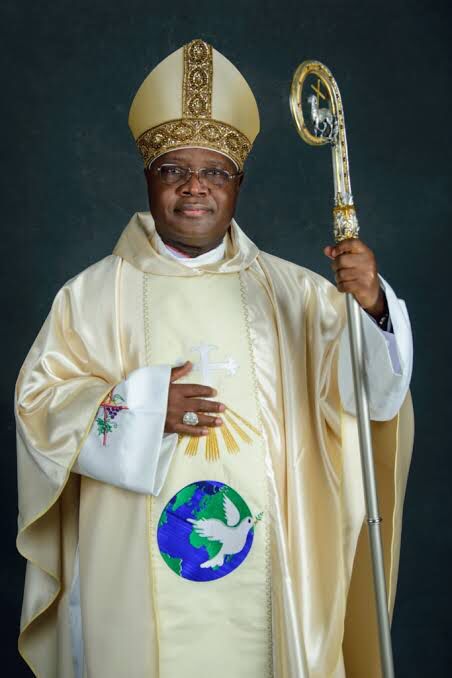On May 18, 2025, President Bola Ahmed Tinubu, Nigeria’s leader and a Muslim, made a historic trip to Rome to attend the inauguration of Pope Leo XIV, an event that has sparked widespread discussion about the potential for inter-religious harmony in Nigeria. Archbishop Ignatius Kaigama of Abuja described this visit as “a good sign of concrete inter-religious dialogue,” a sentiment that resonates deeply in a country where religious diversity often shapes both unity and tension. This blog post explores the significance of Tinubu’s attendance at the Vatican, the context of this gesture, and its implications for Nigeria’s religious and political landscape.
A Historic Invitation and a Symbol of Unity
The invitation to President Tinubu came directly from Pope Leo XIV, a pontiff with a personal connection to Nigeria, having served as a priest in Lagos during the 1980s. This historical tie added a layer of significance to the visit, as it underscored a bridge between the Vatican and Nigeria, two entities with distinct but intersecting religious identities. Tinubu, leading a high-profile Nigerian delegation, was joined by prominent Catholic leaders, including Archbishop Lucius Ugorji, President of the Catholic Bishops’ Conference of Nigeria (CBCN), Archbishop Alfred Martins of Lagos, and Bishop Matthew Hassan Kukah of Sokoto, a well-known advocate for peace and dialogue. Their presence alongside Tinubu, a Muslim head of state, sent a powerful message of collaboration and mutual respect.
Archbishop Kaigama’s remarks reflect the optimism surrounding this event. For him, Tinubu’s attendance was not merely a diplomatic courtesy but a deliberate act of fostering unity in a nation where religious divides—primarily between Christians and Muslims—have occasionally fueled conflict. Nigeria, with its population of over 200 million, is almost evenly split between the two faiths, making inter-religious dialogue a critical component of national cohesion. Kaigama’s pride in Tinubu’s gesture highlights the potential for such high-profile acts to set a precedent for grassroots-level harmony.
To fully appreciate the significance of Tinubu’s Vatican visit, it’s essential to understand Nigeria’s complex religious dynamics. The country has faced significant challenges related to religious tensions, including violent clashes, insurgencies like Boko Haram, and debates over resource allocation and political representation along religious lines. These issues have often strained national unity, with mistrust occasionally simmering between Christian and Muslim communities.
In recent years, however, Nigeria has seen efforts to bridge these divides. Religious leaders, civil society organizations, and even government initiatives have sought to promote dialogue and coexistence. Tinubu’s administration, since taking office in 2023, has emphasized inclusivity, with the president often framing his leadership as one that transcends religious and ethnic affiliations. His decision to attend the papal inauguration aligns with this broader agenda, signaling to Nigerians and the international community that his government values interfaith cooperation.
The inclusion of Catholic bishops in the delegation further amplifies this message. Archbishop Ugorji, as head of the CBCN, represents the institutional voice of Nigerian Catholics, while Bishop Kukah is a globally recognized figure for his work on peacebuilding and advocacy for marginalized communities. Their presence alongside Tinubu in Rome underscores a partnership between the state and the Catholic Church, which represents a significant portion of Nigeria’s Christian population.
The election of Pope Leo XIV, whose identity and background remain relatively private due to Vatican tradition, adds a unique dimension to this event. His service in Lagos during the 1980s likely gave him firsthand insight into Nigeria’s cultural and religious diversity. This connection may have influenced his decision to personally invite Tinubu, recognizing the symbolic weight of a Muslim leader attending a Catholic milestone. For Nigeria, this papal connection fosters a sense of pride and strengthens diplomatic ties with the Vatican, a global religious and political institution.
The inauguration itself, held on May 18, 2025, was a moment of global significance, drawing leaders and dignitaries from across the world. Tinubu’s participation placed Nigeria on this international stage, highlighting its role as a key player in African and global diplomacy. Beyond the optics, however, the visit carries practical implications for Nigeria’s domestic policies and its approach to inter-religious relations.
Archbishop Kaigama’s characterization of Tinubu’s visit as a “good sign of concrete inter-religious dialogue” points to its potential to inspire tangible outcomes. At its core, inter-religious dialogue seeks to foster understanding, reduce prejudice, and promote collaborative efforts on shared challenges. In Nigeria, where religion often intersects with politics, education, and social services, such dialogue is vital.
Tinubu’s presence in Rome could pave the way for strengthened partnerships between the Nigerian government and religious institutions, particularly the Catholic Church, which plays a significant role in education, healthcare, and social welfare. For instance, Catholic schools and hospitals serve millions of Nigerians, regardless of their faith, making the Church a key stakeholder in national development. By engaging with Catholic leaders on an international stage, Tinubu signals his administration’s willingness to collaborate with religious institutions to address pressing issues like poverty, education, and security.
Moreover, the visit could inspire grassroots initiatives. Religious leaders, inspired by this high-profile gesture, may redouble efforts to promote local dialogues, peacebuilding workshops, and interfaith community projects. In a country where religious misunderstandings can escalate quickly, such initiatives are critical for fostering trust and cooperation.
While Tinubu’s Vatican visit is a positive step, it is not without challenges. Nigeria’s religious landscape remains complex, with ongoing issues like sectarian violence, political favoritism, and economic disparities that sometimes align with religious divides. Critics may argue that a single diplomatic gesture, while symbolic, does not address the structural issues that fuel religious tensions. For Tinubu’s visit to have lasting impact, it must be accompanied by concrete policies that promote equity, protect religious freedom, and address the root causes of conflict.
On the opportunity side, the visit opens doors for Nigeria to strengthen its global image as a nation committed to unity in diversity. It also provides a platform for Tinubu to engage with other world leaders present at the inauguration, potentially fostering partnerships that benefit Nigeria’s economy and security. Domestically, the visit could encourage other political leaders to prioritize inter-religious dialogue, setting a tone of inclusivity that resonates across Nigeria’s diverse regions.
Archbishop Kaigama’s pride in Tinubu’s attendance reflects a broader sentiment among Nigerians who see this as a moment of national pride. The image of a Muslim president standing alongside Catholic bishops at the Vatican is a powerful one, resonating with Nigeria’s motto, “Unity and Faith, Peace and Progress.” It challenges stereotypes and demonstrates that leadership can transcend religious boundaries to focus on shared humanity.
For Nigerian Catholics, in particular, the visit reinforces the Church’s relevance in national life. The Catholic Church in Nigeria, with its millions of adherents and extensive network of institutions, has long advocated for social justice and good governance. Tinubu’s engagement with the Church, both through this visit and his inclusion of its leaders, signals a partnership that could yield dividends in addressing Nigeria’s challenges.
President Bola Tinubu’s attendance at Pope Leo XIV’s inauguration on May 18, 2025, is more than a diplomatic event—it is a clarion call for inter-religious dialogue in Nigeria. As Archbishop Ignatius Kaigama aptly noted, this gesture is a “good sign” of what is possible when leaders prioritize unity over division. By leading a diverse delegation to the Vatican, Tinubu has set an example for Nigerians and the world, showing that collaboration across religious lines is not only possible but essential for progress.
As Nigeria navigates its complex religious and political landscape, this visit offers hope and a blueprint for future efforts. It challenges Nigerians to build on this moment, fostering dialogue, trust, and cooperation at every level of society. For Tinubu’s administration, the task now is to translate this symbolic act into policies and initiatives that make inter-religious harmony a lived reality for all Nigerians. In doing so, Nigeria can truly embody its vision of unity in diversity, becoming a model for other nations grappling with similar challenges.
Join our Whatsapp channel to stay updated always!

